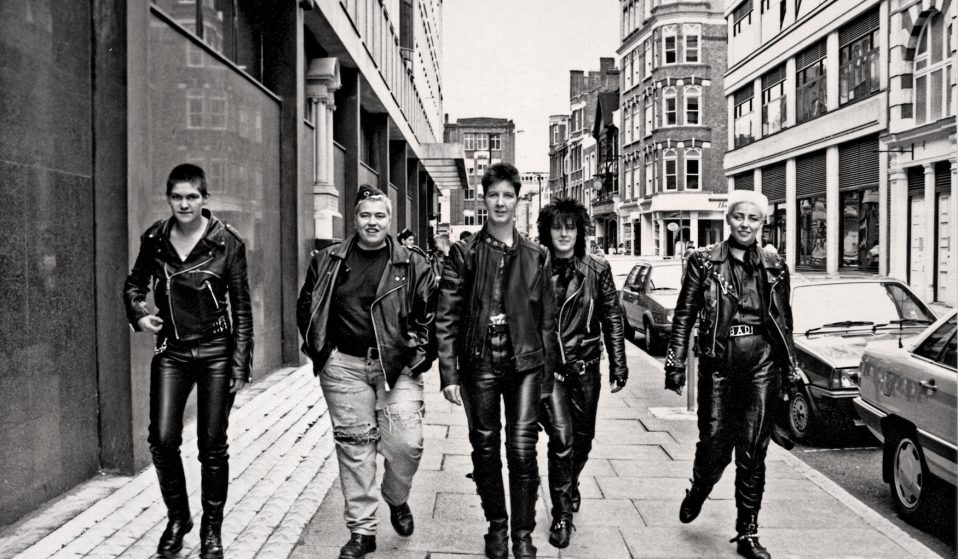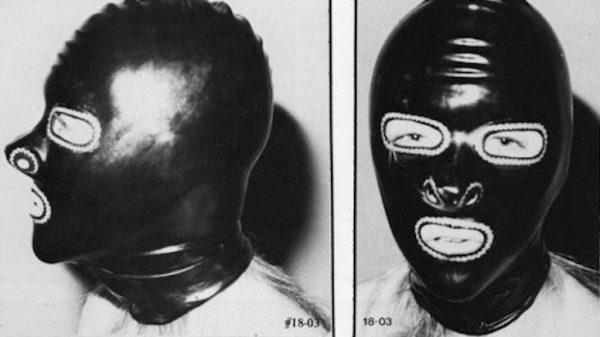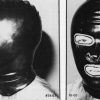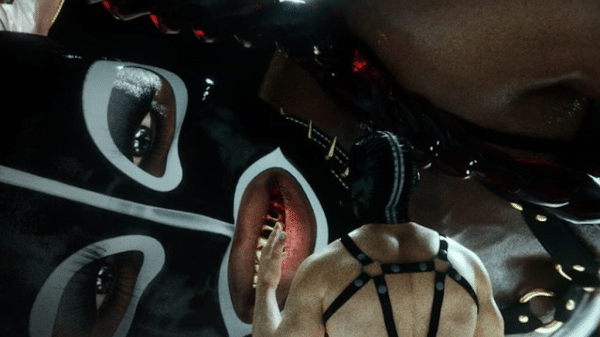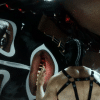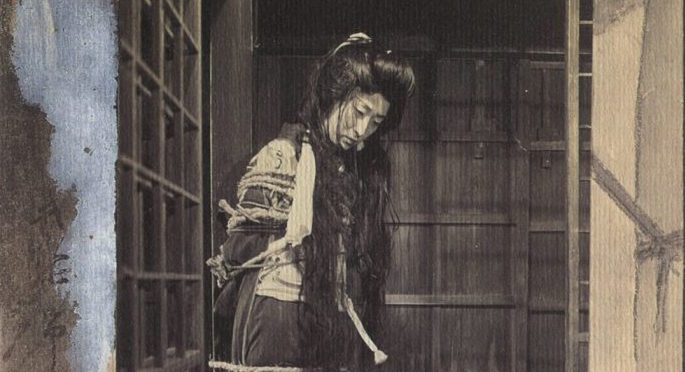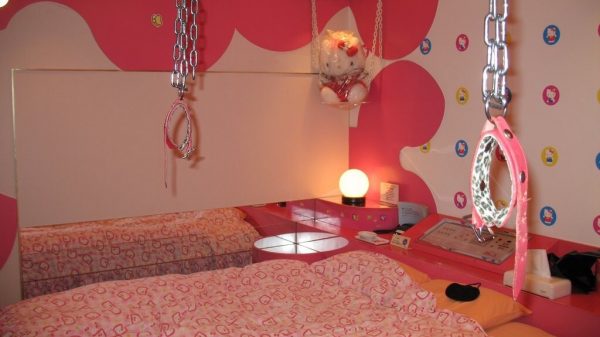via I-D Magazine
According to producer Siobhan Fahey, “this documentary is being made because the history of the London Rebel Dykes of the 80s is in danger of being forgotten.” Young, feminist and punk, the rebel dykes lived together in squats, had bands like Poison Girls and Mouth Almighty and ran sex positive Lesbian S&M clubs. They were genderfluid, trans-friendly and most importantly, they refused to be ignored. With a sold out work-in-progress screening of Rebel Dykes set to take place at BFI Flare (London’s LGBT film festival) this evening, we spoke to Manchester-based Fahey about how this “first generation of sex positive outlaw women” changed London and the city’s LGBT history forever.
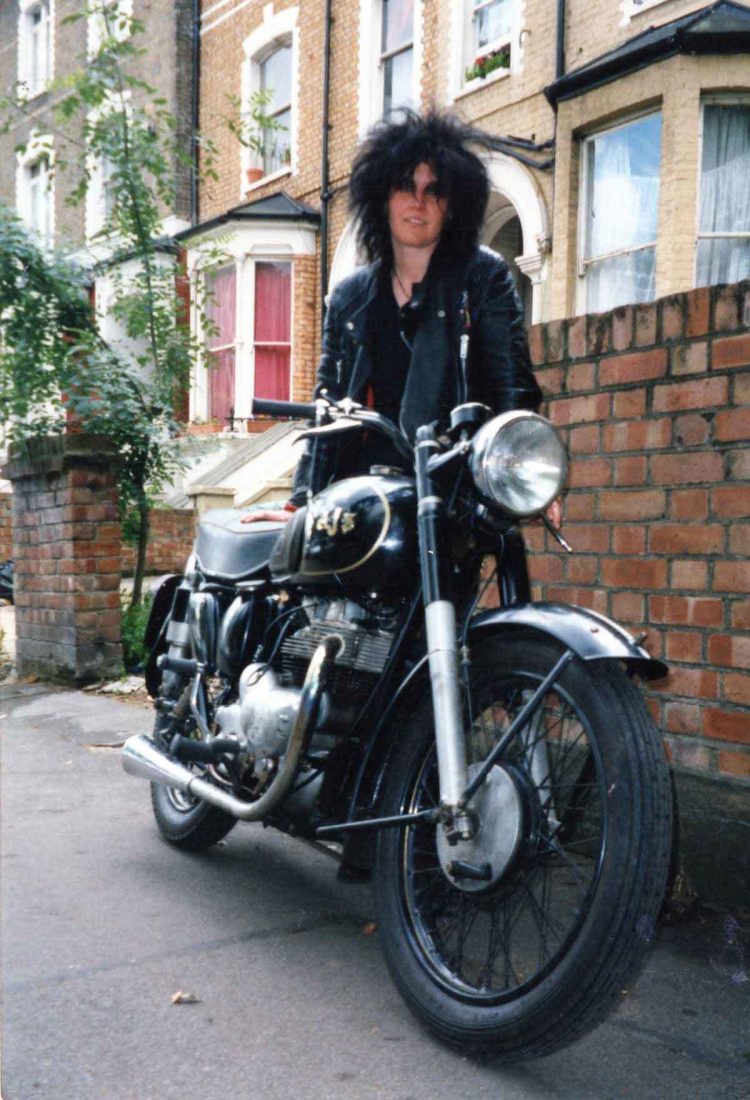
How did the film come about?
I was a rebel dyke back in the 80s. I lived in London in squats — punk parties, fetish, the sex industry, blah, blah, blah — and you move on in life, but I always thought it was something people should know about. Because it was such a lively scene. Then, I created a presentation about it for a conference a couple of years ago and interviewed people and collected images and realized I had stories. And so I thought there was something we could do with it. Then two of my friends — directors Harri Shanahan and Sian Williams — were so excited and said they’d been looking for a project to work on so we just did it.
How far along are you with it?
I guess in the lingo, we’re in “post-production” now. We spent all of last year filming. We came down to London a couple of times and we did some filming in Wales and Manchester. It’s so funny actually, one of the things we’ve got in the film is a bit if recreated footage of London way back when, and of course London does exist in that way anymore so we recreated it in Manchester and Salford to get that 80s feel. I’ve never actually made film before but we hope to have it finished by spring.
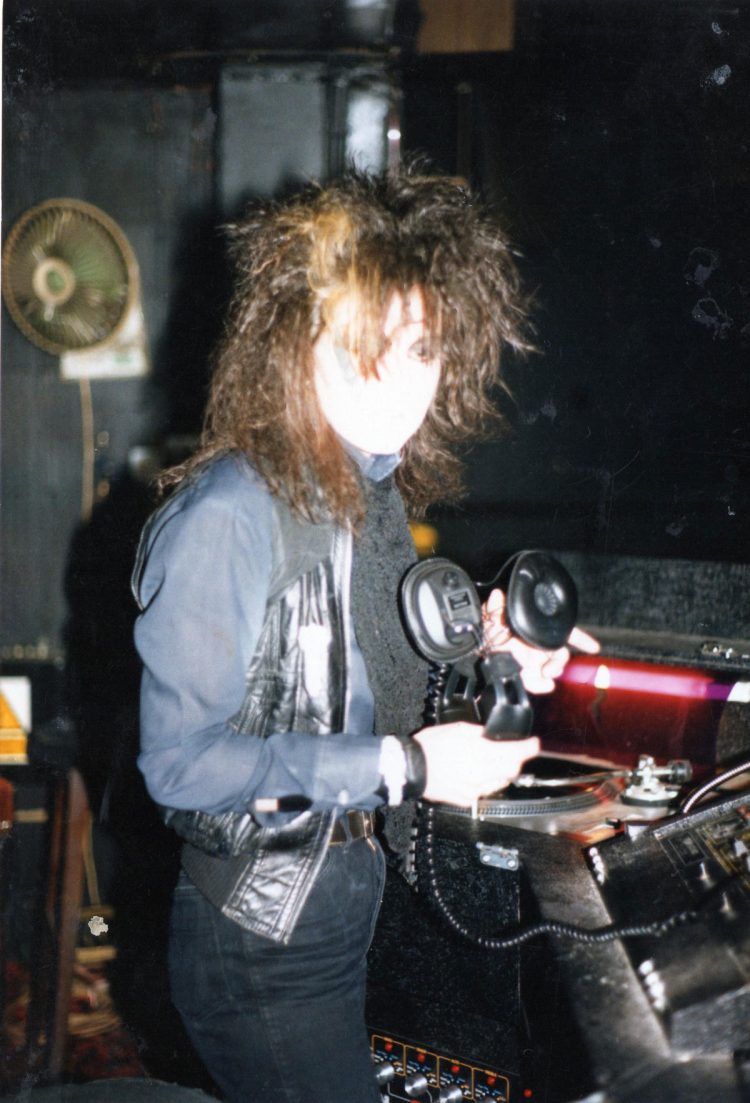
You’ve never made a film before?
I haven’t as a producer. I’m a queer promoter. I just put on gigs and stuff in Manchester. But the filmmakers are filmmakers! Harri’s made lots of shorts and music videos and Sian is an archivist at the BFI and has got an amazing eye.
The archive in the film is so brilliant. What year are the pictures from?
Well, the span of it 1984 – 1990, from the miners’ strike to Poll Tax. The images I love the best are definitely from the early 80s. That’s the look we’ve gone for.
Was it a purely London thing?
It was mostly a London thing. What’s interesting is that when you look at the images, it looks like people today but remember, we were the first ones to dress like that. And there was hardly any of us. It was very, very small. Being a gay man was imprisonable and being a lesbian was rare. Gay pride fitted into a little slot on the South Bank. Nobody had tattoos at all. We did but nobody else did. No body had piercings except a few of us who’d been to America and got our nipples pierced or something. And there were other parts of the country — particularly Leeds — but in other parts of the country they were incredibly opposed to us. So, yeah, it was particularly a London thing. The city was empty, you know? It was empty! And there were 30,000 squats. There were empty properties everywhere. It wasn’t gentrified. We didn’t know that word.
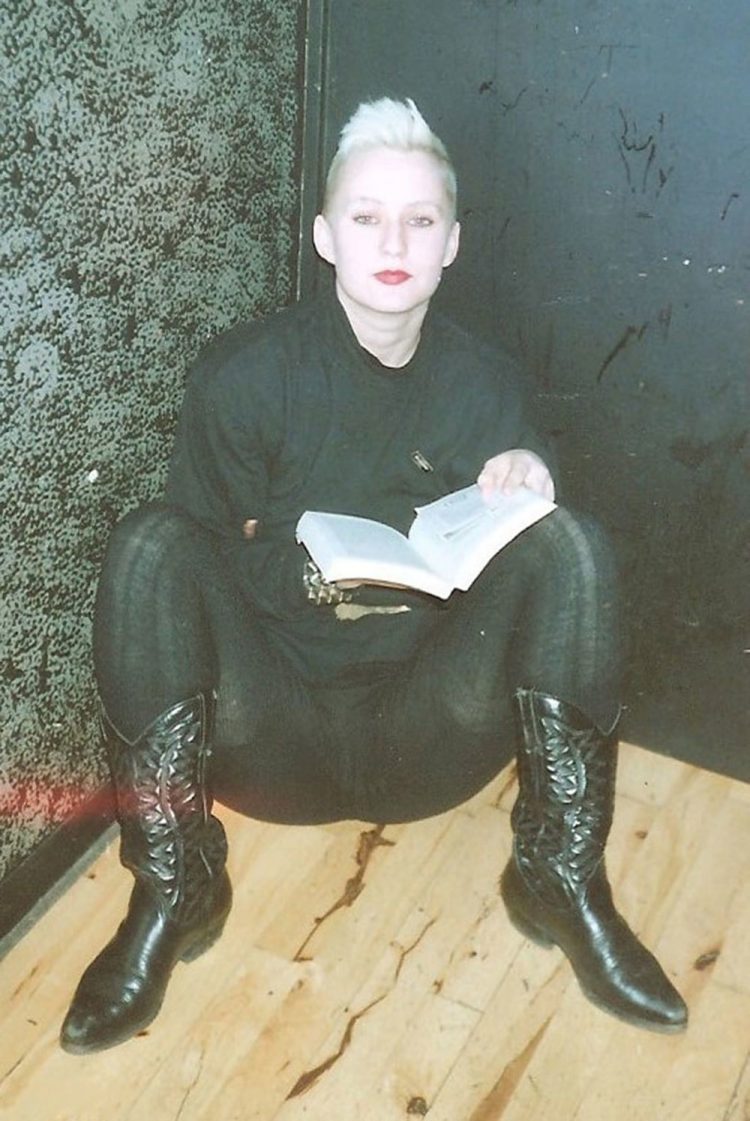
Is it still possible to be a punk?
Yeah! We are!
And you obviously pre-dated the Riot-Grrrl moment. Did you feel a connection to that?
To be honest, I’d drifted on by that point personally. But yeah, some of the girls that were part of us, joined Riot Grrrl bands. One of us was a member of Tribe 8. And we had a huge connection with San Fran. A few of us were back and forth. I went a lot. So we were the Riot Grrrls.
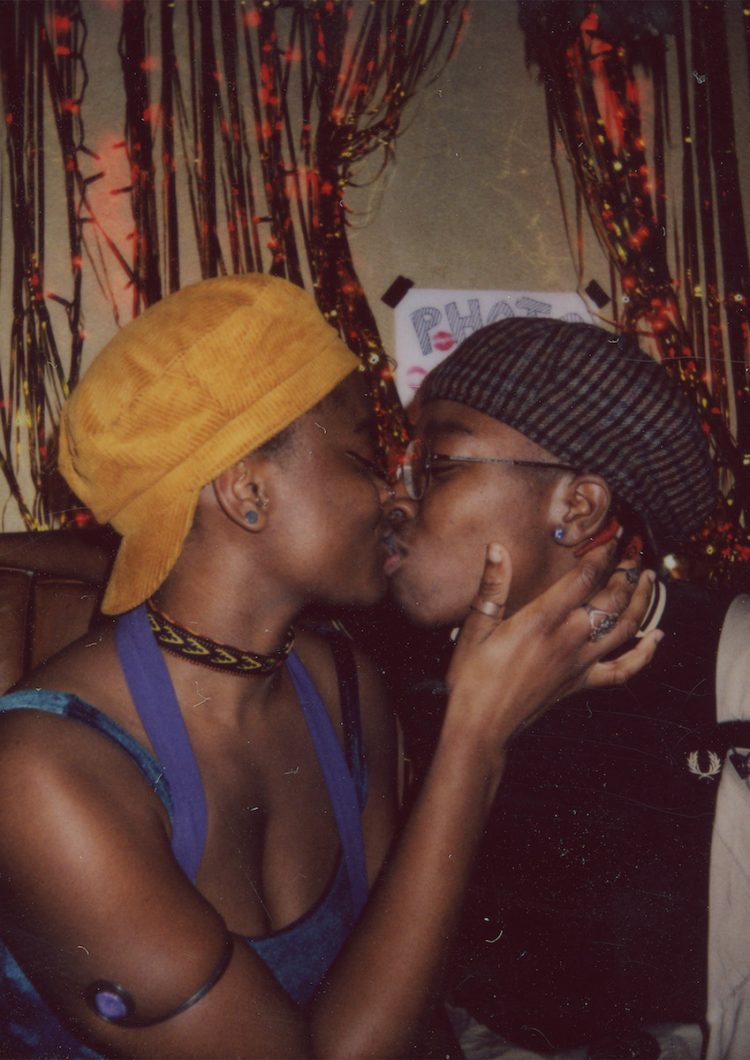
Do you think people are becoming more accepting of queer culture?
People are more accepting but they’re kind of not. We were punks! But the queer authority these days is actually quite oppressive. Yeah, there’s genderqueer and trans but we had that then! There were trans women that came to our clubs. People always talk about, like, waves but some times it’s just ebbs and flows. Some times it doesn’t feel that accepting even now, in the queer community.
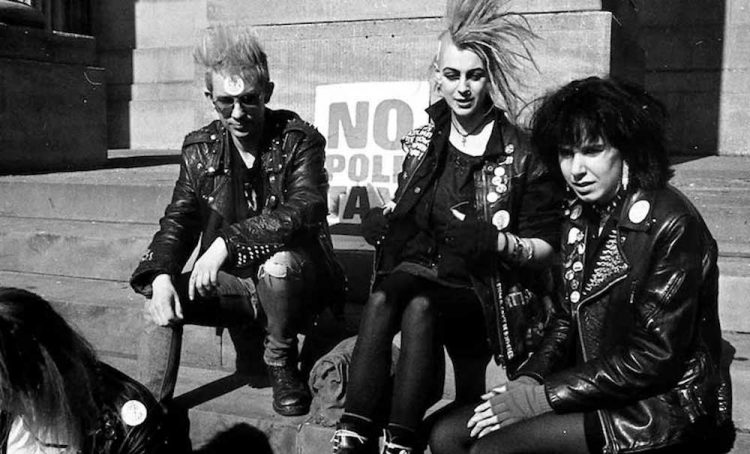
There much have been such a sense of community in what you were doing…
Oh, yeah. We were dead lucky. It was a very privileged time to live. We lived on the dole or off the sex industry which was quite safe. We lived in free housing. Free fuel. So we didn’t work! We had all the time we wanted. We were supported by the government really to create.
Do you see any parallels with the government of now?
God, yeah. I mean, really. They’re cleverer now. They’d never do a Clause 28 now. It’s in a different league. And the poverty now is worse! Because there’s not the option to have free housing or live on the dole. It’s worse. Much worse. I think there was a magical innocence back then. I know it looks grimy and it was and it was tough and we were poor and we didn’t eat every day and we drank. But compared to now it was halcyon days.


